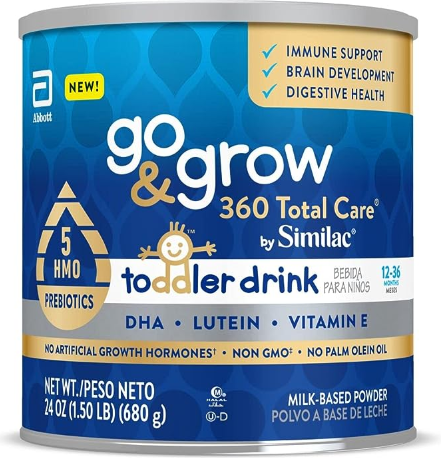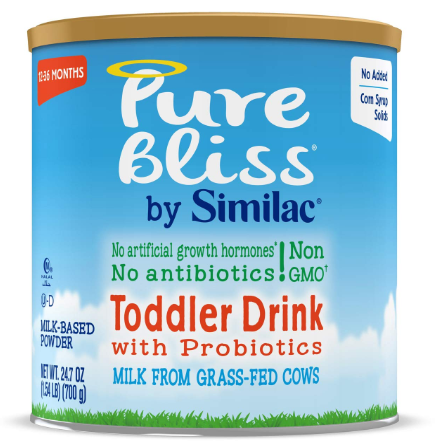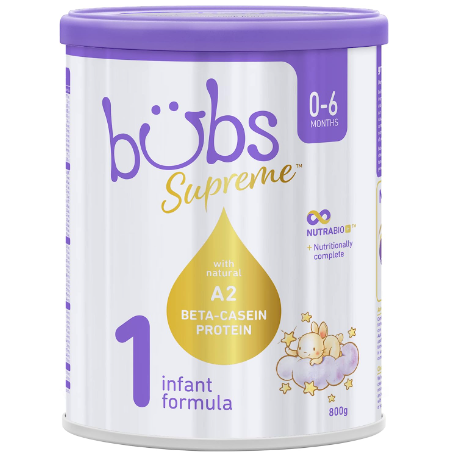What You Need to Know About Infant Formula and Constipation

Tips for Dressing Children in Winter
June 2, 2024
The LeapFrog 80-609800 Yum-2-3 Toaster: Elevating Your Child’s Learning Adventure
June 22, 2024Pediatricians receive a lot of questions about feces. The big question: Is my baby constipated? After all, it can be hard to know, and there are big differences in perceptions of bowel health. Joanna Dolgoff, MD, a pediatrician and spokesperson for the American Academy of Pediatrics (AAP), explains that some babies may take a few days to have a bowel movement and have no problems at all, while others may have a daily bowel movement but have difficulty doing so.
In any case, if you’re worried about your baby’s digestion, it’s natural to wonder if nutrition is working. You may wonder if formula is causing your baby’s stools to harden or if there’s the best formula for constipation.
Doctors say breastfed/breastfed babies are less likely to experience constipation than formula-fed infants. (It’s also worth noting that it’s common for breastfed babies to have less frequent bowel movements around 2 weeks, which is not the same as constipation, as long as the stools are soft and the baby doesn’t strain.)

So what causes constipation in formula-fed babies? There is an idea, doctors say: formula milk is thicker than breast milk, so it takes longer to pass through the gastrointestinal tract.
Finding that infant constipation isn’t always the easiest task, and relieving constipation in formula-fed infants isn’t as simple as changing formula (read: there’s no best formula for constipated babies).
Read on to find out what pediatricians think about the relationship between infant formula and constipation, and how to spot (and treat) your baby’s digestive problems.
How to Know if Your Baby Is Constipated?
Constipation in children aged 6 months to 4 years is defined by two or more of the following characteristics:
- Have fewer than two bowel movements per week
- Excessive stool retention
- Painful or difficult bowel movements
- Large-diameter Rinko
- There is a large amount of stool in the rectum
Some parents think that constipation means having fewer bowel movements or straining too much. But if the stool is soft in texture, then straining during bowel movements or reddening of the face is actually quite normal. Babies are just learning to use their muscles.
Despite this, babies with constipation usually have fewer bowel movements than normal babies. So what is normal?
Breastfed babies may go multiple times a day, or at least every five days, while formula-fed babies can go once or three times a day, or even every few days. Babies with constipation tend to have bulky, difficult, painful bowel movements, and often look like pellets. They may hunch their backs, tighten their hips, or cry as they walk.
But keep this in mind: most babies don’t get constipated. Constipation is certainly possible, but your baby may actually just be straining or colic, which can cause crying and discomfort.
Cow’s milk protein allergy, lactose intolerance, or rarely, other underlying conditions may also play a role.
Is There Any Best Infant Formula for Constipation?
If you think your formula-fed baby is constipated, a series of questions may come to your mind: Does formula make your baby constipated? Can changing my baby’s formula cause constipation? Can ingredients like palm oil cause constipation?
First: No single formula has been shown to reduce or prevent constipation, and there is no best infant formula to treat constipation. According to the American Academy of Pediatrics, changing the formula doesn’t necessarily help treat constipation.
Bhavana Arora, M.D., a group of more than 160 community pediatricians in Los Angeles, says that by changing the formula unnecessarily, you may just be looking for a solution that isn’t as effective. Or worse: Changing your baby’s formula can lead to constipation, which can lead to abdominal discomfort because your baby’s gastrointestinal system has to adapt to that change, says Dr. Dawkins.
That’s why doctors often don’t recommend changing formula without knowing exactly what’s causing your symptoms.

When to Change the Formula Can Help Relieve Your Baby’s Constipation
While changing formula is usually not the first line of defense for constipation in infants, your pediatrician may recommend changing formula in some specific situations. Please read below.
Your child is allergic to cow’s milk
Signs of a true cow’s milk protein allergy may include blood or mucus in your baby’s stool, or your baby being very fussy (although you will always want to confirm a cow’s milk allergy before changing formula). Only about 5% to 7% of formula-fed babies are allergic to cow’s milk, but if your baby is one of the few, your doctor may recommend a hypoallergenic option, such as Enfamil’s Nutramigen.
Switching to soy formula is also not always enough. Many children who are allergic to cow’s milk are also allergic to soy. It’s worth noting that experts say that if you’re wondering if soy formula can cause constipation in your baby (unless you’re allergic), then most likely not.
Your child has acid reflux
Almost all babies experience some degree of regurgitation or spit-up, sometimes caused by overfeeding or not keeping the baby upright after feeding. That said, there is infant formula for reflux. These recipes usually add rice protein to thicken it.
The idea among doctors is that the formula is harder to descend and recover. “It doesn’t help all babies, but trying a special formula under the supervision of a pediatrician won’t hurt.
Tips for Relieving Constipation in Babies
First, if you suspect constipation, it’s best to consult a healthcare provider. This way, you can identify potential allergies, rule out other root causes, determine that the problem is indeed constipation, and find the right solution for your baby.
There are also a few things you can do at home with the guidance of a healthcare professional to address this. Dr. Dolgov recommends that you start with the following:
- If your baby is at least 4 months old and your pediatrician approves, try providing 100% prune, apple, or pear juice for two weeks. Babies between 4 and 8 months of age should consume only 2 to 4 ounces, while babies between 8 and 12 months of age can consume up to 6 ounces. However, it’s important to note that the American Academy of Pediatrics recommends that children under one year of age should not consume fruit juice unless it’s medically necessary, so check with a healthcare provider to see if your condition warrants it. Alternatively, you can consider fruit puree, but again, check with the supplier first.
- Try offering high-fiber baby foods such as barley cereals, sweet potatoes, plums, pears, peas, beans, and broccoli.
- If constipation is more severe, you can ask your healthcare provider about Miralax (polyethylene glycol), a safe and effective laxative that should only be taken under the guidance of a medical professional.



